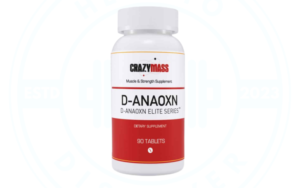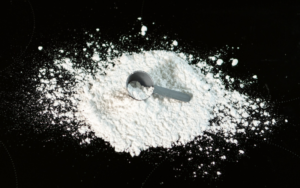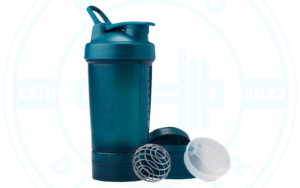Introduction
Building muscle isn’t just about lifting weights and protein intake.
Vitamins and Minerals play a crucial role in muscle growth and recovery.
Understanding which vitamins and Minerals are essential can significantly enhance your fitness journey.
Key Takeaways
- Vital Vitamins and Minerals: Essential nutrients like Vitamin D, C, E, and B vitamins, along with minerals such as Iron and Magnesium, play a crucial role in muscle growth, recovery, and overall athletic performance.
- Muscle Growth and Repair: These nutrients aid in everything from protein synthesis and testosterone production to protecting muscles from oxidative stress and enhancing energy metabolism.
- Enhanced Workout Performance: Adequate intake of these vitamins and minerals supports improved endurance, strength, and efficiency in workouts.
Table of Contents
Vitamin D: The Muscle Building Powerhouse
Why Vitamin D is Crucial for Muscles
Vitamin D is a muscle-building powerhouse. Often recognized for its role in bone health, Vitamin D is equally important for muscle growth and recovery. Here’s how it helps:
- Boosts Testosterone Production: Vitamin D is vital for testosterone production, a key hormone in muscle growth. Studies have shown that Vitamin D supplementation can lead to significant increases in explosive power and strength, especially when combined with strength training.
- Enhances Protein Synthesis: Protein synthesis is the process your body uses to build muscle. Vitamin D plays a critical role here, partly due to its impact on testosterone levels. For example, a study found that men with low testosterone experienced a 20% increase in free testosterone after taking Vitamin D supplements.
| Aspect of Vitamin D | Benefit for Muscle Growth |
|---|---|
| Testosterone | Increases testosterone production |
| Protein Synthesis | Enhances muscle-building processes |
Vitamin C: Antioxidant and Recovery Aid
The Multifaceted Role of Vitamin C in Muscle Health
Vitamin C is widely known for its immune-boosting properties, but its benefits extend far into fitness and muscle development. Here’s what makes Vitamin C a crucial element for muscle growth and recovery:
- Powerful Antioxidant: As a potent antioxidant, Vitamin C protects muscle cells from the damage caused by free radicals, which are produced during intense workouts.
- Aids in Hormone Production: It plays a role in forming testosterone and other anabolic hormones, essential for muscle growth.
- Supports Collagen Formation: Collagen is a key component of connective tissues. Vitamin C’s role in collagen formation means it’s vital for maintaining the health of bones and muscles, reducing the risk of injuries.
Fruits like Citrus fruits, and vegetables are great sources of vitamin C.
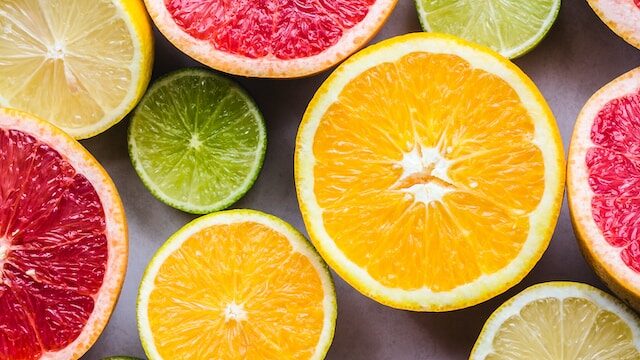
Vitamin C and Muscle Health
| Function of Vitamin C | Impact on Muscle Health |
|---|---|
| Antioxidant | Protects muscle cells from damage |
| Hormone Production | Assists in creating muscle-building hormones |
| Collagen Formation | Strengthens bones and muscles |
Vitamin E: The Protector
Vitamin E’s Essential Role in Muscle Health
Often associated with skincare, Vitamin E is a lesser-known yet vital nutrient for muscle growth and recovery. It stands out as a muscle protector in several ways:
- Powerful Antioxidant: Vitamin E is a robust antioxidant that shields cells from the damaging effects of free radicals. These free radicals are more prevalent in your body after intense exercise, and they can lead to muscle fatigue and slower recovery.
- Reduces Oxidative Stress: By combating these free radicals, Vitamin E helps reduce oxidative stress in the body. This leads to decreased muscle damage and better overall muscle health.
The Benefits of Vitamin E for Muscles
Here’s a quick look at how Vitamin E supports your fitness goals:
| Benefit of Vitamin E | How It Helps Muscles |
|---|---|
| Antioxidant Action | Protects muscles from free radical damage |
| Reduces Oxidative Stress | Decreases muscle damage, aids in recovery |
Incorporating Vitamin E into your nutrition plan can be a game-changer for anyone engaged in regular, intense workouts, looking to optimize muscle growth and recovery.
B Vitamins: Essential for Metabolism and Muscle Repair
The Critical Role of B Vitamins in Fitness
B Vitamins, particularly B6, B12, and Folate, play a crucial role in muscle growth and recovery.
Their benefits are multifaceted, making them indispensable for anyone focused on fitness:
- Direct Role in Protein Metabolism: B6 and B12 are directly involved in the metabolism of proteins. The more protein you consume, the more B6 is required to help metabolize it, which is crucial for muscle building.
- Supports Red Blood Cell Production: These vitamins are essential in producing red blood cells, which carry oxygen to your muscles, vital for growth and repair.
- Enhances Nitric Oxide Production: Taking Folic Acid (B9) alongside B6 and B12 can improve blood flow to the muscles, thanks to increased nitric oxide production and better endothelial function.
B Vitamins and Muscle Health
Here’s a breakdown of how these B Vitamins supports your muscle growth journey:
| B Vitamin | Role in Muscle Health |
|---|---|
| B6 | Aids in protein metabolism and red blood cell production |
| B12 | Crucial for red blood cell production and energy |
| Folate (B9) | Enhances blood flow to muscles |
Biotin: Energy Production from Carbohydrates
Biotin’s Key Role in Fitness and Muscle Growth
Biotin, also known as Vitamin B7, is a vital part of the vitamin B complex and plays an important role in fitness, especially in energy production. Here’s how biotin contributes to muscle growth and workout efficiency:
- Carbohydrate Metabolism: Biotin helps your body transform carbohydrates into glucose, which is a primary energy source. This process is essential for providing the energy needed during workouts.
- Fats and Proteins Metabolism: Besides carbohydrates, biotin also helps in the faster metabolism of fats and proteins, contributing to the energy required for effective training and muscle repair.
How Biotin Supports Your Workout Goals
Here’s a breakdown of biotin’s benefits for those focused on fitness:
| Aspect of Biotin | Benefit for Workouts |
|---|---|
| Carbohydrate Metabolism | Provides energy for workouts |
| Fat and Protein Metabolism | Aids in muscle repair and energy production |
Ensuring adequate biotin intake, through diet or supplements, can be a game-changer in your fitness journey, particularly in ensuring you have the energy to perform exercises correctly and consistently.
Vitamin A: Supporting Muscle and Bone Health
The Overlooked Role of Vitamin A in Fitness
Vitamin A, commonly praised for its benefits to eye health, plays a significant yet often overlooked role in muscle growth and bone health. It’s a vital nutrient for athletes and bodybuilders due to its various functions:
- Facilitates Protein Synthesis: Vitamin A is crucial for protein synthesis, the process your body uses to build muscle. As protein synthesis increases, Vitamin A levels need to be replenished since it’s consumed during this process.
- Supports Testosterone Production: It also influences testosterone levels, a key hormone in muscle building. Research has shown that Vitamin A supplementation can mimic the muscle maturity effects similar to those seen with testosterone.
- Promotes Bone Development: Beyond muscles, Vitamin A is essential for bone development, providing structural strength to your musculoskeletal system.
Vitamin A’s Contribution to Muscle and Bone Health
Here’s a quick overview of Vitamin A’s benefits for fitness enthusiasts:
| Aspect of Vitamin A | Benefit in Fitness |
|---|---|
| Protein Synthesis | Essential for muscle building |
| Testosterone Levels | Supports hormone production for muscle growth |
| Bone Development | Contributes to the strength and health of bones |
Essential Minerals for Muscle Growth and Endurance
While vitamins are crucial for muscle health, minerals play an equally important role in enhancing fitness outcomes. Minerals like Iron and Magnesium are vital for muscle growth, energy production, and endurance.
Iron: Oxygenating Your Muscles
The Essential Role of Iron in Muscle Function
Iron plays a pivotal role in the fitness world, particularly in how it supports muscle function and growth. Its primary function is related to oxygen transportation in the body, which is crucial during workouts.
Here’s why iron is vital for anyone aiming to build muscle:
- Oxygen Transport: Iron is key for producing hemoglobin, the protein in red blood cells that carries oxygen from your lungs to muscles. Adequate oxygen in muscles is essential for optimal performance and endurance during workouts.
- Energy and Breath Control: By boosting hemoglobin levels, iron helps sustain longer workouts, improving energy and breath control. This increased stamina is crucial for effective muscle building.
Iron is found naturally in many foods such as:
- Meat, poultry and fish
- Eggs
- Beans, peas, lentils, tofu
- Some vegetables such as spinach and beets
- Whole grains such as quinoa, whole oats and whole grain bread
- Nuts, seeds and some dried fruit like raisins
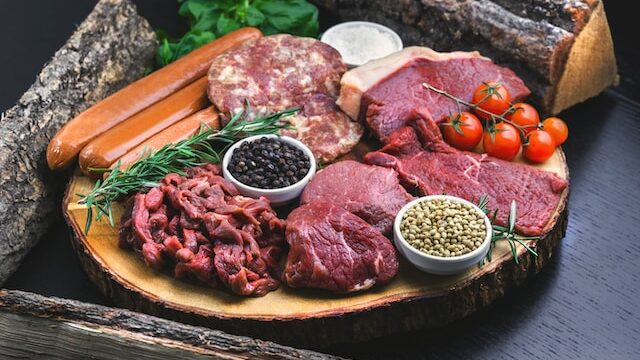
Understanding Iron’s Impact on Workouts
Here’s a snapshot of how iron contributes to your fitness routine:
| Role of Iron | Benefit for Workouts |
|---|---|
| Oxygen Transport | Enhances muscle endurance and performance |
| Energy Production | Improves workout stamina and breath control |
Ensuring you have enough iron, either through diet or supplements, can significantly impact your ability to perform well in your workouts and aid in muscle growth.
Magnesium: Essential for Energy Conversion
Magnesium’s Role in Muscle Growth and Performance
Magnesium is a key nutrient that often doesn’t get the attention it deserves in the context of muscle growth and athletic performance. Here’s how it contributes to fitness:
- Aids in Energy Metabolism: Magnesium is essential for the body’s ability to convert food into energy. It helps metabolize carbohydrates, fats, and amino acids, turning them into the energy needed for workouts.
- Supports Consistent Workouts: Adequate magnesium levels can help maintain regular heart rates and energy levels, making your cardio exercises more effective and allowing for consistent weight training.
The Fitness Benefits of Magnesium
Let’s look at how magnesium supports your workout regime:
| Function of Magnesium | Impact on Fitness |
|---|---|
| Energy Metabolism | Converts nutrients into usable energy |
| Workout Support | Maintains heart health and energy levels |
Incorporating enough magnesium into your diet, either through food or supplements, is crucial for anyone looking to enhance their muscle growth and overall fitness performance.
Creatine: Enhancing Muscle Mass and Strength
The Power of Creatine in Muscle Building
Creatine is renowned in the fitness world for its impressive impact on muscle mass and strength. Widely used by athletes and gym enthusiasts, creatine offers several key benefits:
- Natural Energy Source for Muscles: Your body produces creatine naturally as an energy source for muscles. Supplementing with creatine can boost these natural levels.
- Increases Muscle Strength and Mass: Studies have shown that creatine supplementation can increase muscle strength and mass. This is because it enhances your muscles’ ability to perform in high-intensity workouts, leading to better muscle growth over time.
- Boosts Muscle Creatine by Up to 40%: A study reported that creatine supplementation could increase muscle creatine stores by up to 40%, significantly enhancing workout performance and muscle building.
Creatine’s Role in Enhancing Fitness
Here’s an overview of how creatine can supercharge your fitness routine:
| Benefit of Creatine | Impact on Fitness |
|---|---|
| Energy Boost | Enhances muscle energy for better performance |
| Muscle Strength | Increases strength for improved workouts |
| Muscle Mass | Aids in muscle growth and development |
Conclusion
Incorporating creatine into your fitness regimen, either before or after workouts, can lead to significant improvements in muscle strength and mass, making it a top supplement for those looking to enhance their physical fitness.
Understanding the role of key vitamins and supplements is crucial. From the muscle-building power of Vitamin D to the energy-boosting capabilities of Biotin, each nutrient plays a unique role in supporting your fitness goals.
Creatine stands out as a powerhouse for increasing muscle mass and strength, while vitamins like C and E protect and repair muscle tissue, ensuring a balanced approach to muscle health.

